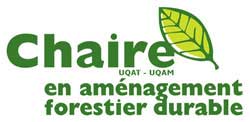
Comment se porte la forêt québécoise, 25 ans après L’erreur boréale?
Nous sommes retournés sur les lieux des coupes forestières dénoncées par Richard Desjardins dans le documentaire L’erreur boréale, il y a 25 ans cette année. Là où on trouvait un sol à nu, on voit désormais de grands arbres. Comme cette parcelle de forêt, la gestion de la forêt publique a connu de profonds changements ces dernières années. Mais en dépit de ces avancées, tout n’est pas rose au pays de l’épinette noire et du pin gris. Bilan. [..] Le biologiste retraité Yves Bergeron a étudié la forêt pendant toute sa carrière. Dans la Forêt d’enseignement et de recherche du lac Duparquet en Abitibi-Témiscamingue, il a évalué avec ses collègues la proportion d’arbres à laisser intacts pour favoriser la régénération naturelle des arbres.
Lire plus
Le Québec doit aussi miser sur les champignons pour préserver la biodiversité
La protection des champignons gagne du terrain sur la scène internationale. Dans la foulée de la COP16 qui s’est déroulée à Cali (Colombie), le Chili — premier pays à avoir intégré les champignons dans une loi environnementale — et le Royaume-Uni ont exhorté les parties à s’engager en faveur de la conservation des champignons. Cet appel historique s’inscrit dans la continuité d’une série d’étapes clés, portée notamment par l’organisation non gouvernementale Fungi Foundation, en faveur de l’intégration des champignons dans les plans de conservation de la biodiversité à l’échelle mondiale. Des études de plus en plus nombreuses démontrent l’importance indéniable des champignons dans le fonctionnement et la dynamique naturelle des écosystèmes.
Lire plus
Val-d’Or : 26e colloque UQAT-UQAM sur l’aménagement forestier
Une douzaine de conférences, une soixantaine de personnes sur place et près de 150 personnes en ligne, voilà que la table était mise pour le 26e colloque de la chaire UQAT-UQAM sur l’aménagement forestier. Les intervenants, dont Osvaldo Valeria, professeur et cotitulaire de la chaire UQAT-UQAM en aménagement forestier, s’accordent pour dire que des avancées concrètes sont nées de l’événement dans les dernières années.
Lire plus
Voler au secours des… chauves-souris
Les efforts de l’industrie minière en matière de développement durable ne se limitent pas au traitement de l’eau, au traitement des résidus miniers et aux émissions de gaz à effet de serre. Les sociétés minières déploient également des démarches, souvent méconnues, de préservation de la biodiversité. Quel animal pourrait être aussi emblématique que la chauve-souris pour illustrer la cohabitation souterraine entre l’homme et la nature ?
Lire plus
Retour sur la rencontre annuelle du Laboratoire International de Recherche sur les Forêts Froides - Maroc
La 4e rencontre annuelle du laboratoire de recherche sur les forêts froides de l’Université du Québec en Abitibi-Témiscamingue s’est tenue à Ifrane, dans une ville appelée « petit Suisse » du Maroc du 22 au 25 octobre 2024.
Lire plus